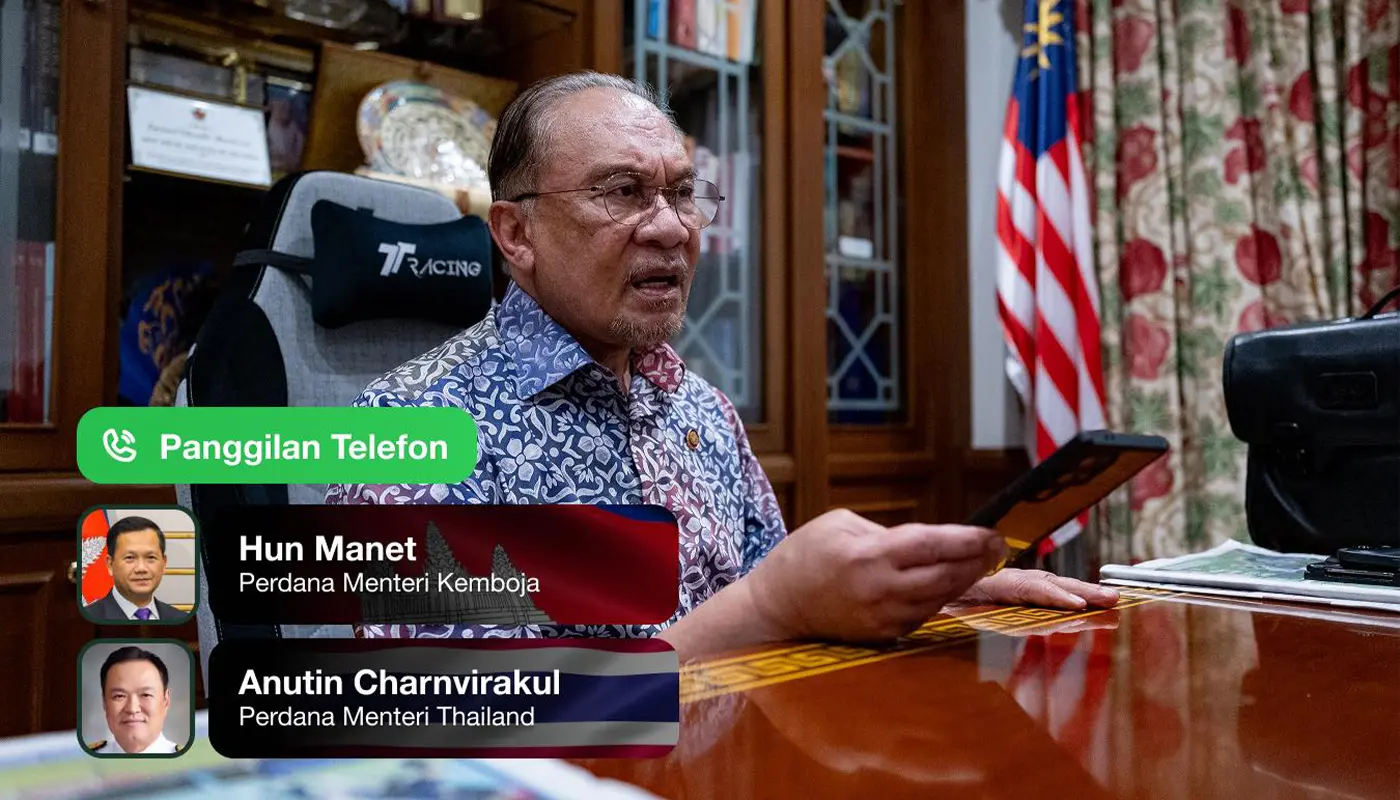KUALA LUMPUR – Malaysia has reaffirmed its commitment to act as a neutral facilitator in efforts to ease renewed tensions between Cambodia and Thailand, following recent incidents along their shared frontier.
Prime Minister Datuk Seri Anwar Ibrahim confirmed that he had spoken separately with Cambodian leader Hun Manet and Thai Prime Minister Anutin Charnvirakul to review the latest developments.
Both leaders, he said, expressed their determination to pursue dialogue and uphold the principles agreed under the Kuala Lumpur Peace Accord, signed on 26 October 2025 during the 47th ASEAN Summit.
The accord was intended to end months of hostilities that escalated into open conflict in July, leaving more than 40 people dead and displacing over 300,000 civilians.
Despite the agreement, tensions resurfaced earlier this month when a landmine blast injured Thai soldiers, prompting Bangkok to temporarily suspend implementation of the ceasefire.
Anwar emphasised Malaysia’s position that the ceasefire and friendship between the two neighbouring states must be strengthened. “Both leaders provided positive feedback and reaffirmed their commitment to pursuing a peaceful resolution, in line with the understandings agreed under the Kuala Lumpur Peace Accord,” he said.
He added that Malaysia remains ready to continue playing its role as a facilitator, not only as ASEAN Chair but also as a close neighbour committed to regional stability.
“May both nations continue to demonstrate the resolve and courage needed to restore stability along the border, for lasting peace in the region and the safety of their people,” Anwar noted.
In his separate conversation with Hun Manet, Anwar expressed appreciation for Cambodia’s “mature approach” in prioritising consultation and constructive dialogue.
He reiterated Malaysia’s full support for Cambodia’s decision to rely on agreed mechanisms and the Kuala Lumpur treaty as the foundation for resolving disputes.
Malaysia’s Foreign Minister Mohamad Hasan has also confirmed that Kuala Lumpur is prepared to host fresh peace talks, with both Cambodia and Thailand signalling willingness to continue discussions in Malaysia.
Regional analysts highlight that Malaysia’s mediation reflects ASEAN’s principle of non-interference while promoting collective stability.
Observers note that Anwar’s diplomatic efforts have helped preserve unity within ASEAN, despite criticism from some quarters in Bangkok, who view external facilitation as interference.
Malaysia’s stance, however, has been consistent: peace must be achieved through dialogue, and any disruption to the process risks reigniting violence.
Defence officials in Kuala Lumpur have stressed that the peace framework should remain uninterrupted, given its importance to the wider region.
As ASEAN Chair, Malaysia’s role is seen as pivotal in ensuring that both Cambodia and Thailand remain committed to peaceful settlement.
The coming weeks are expected to see further consultations, with Kuala Lumpur likely to host the next round of discussions aimed at restoring confidence and preventing further escalation.






